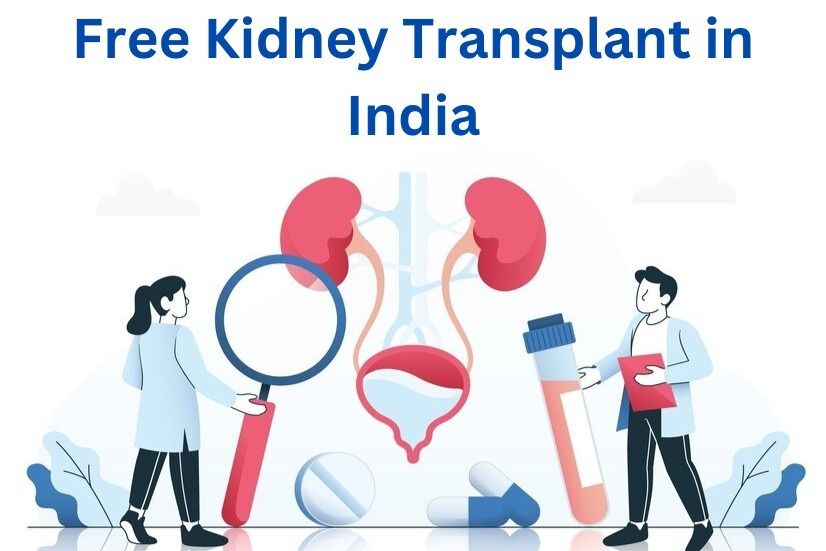Overview
India stands as a global leader in kidney transplants, welcoming over 222,000 patients annually. With the world's second-largest living donor program, it offers advanced techniques, cost advantages, and an impressive 90%–95% success rate.
So, if you're searching for a "kidney transplant in India," know this: you're not alone. Thousands have found hope and a brighter future here. With its expertise, affordability, and high success rates, India could be the answer you've been seeking.
Do you know?
The first kidney transplant in India was performed in 1971 at the Christian Medical College (CMC) in Vellore, Tamil Nadu. India has made remarkable advancements in the arena of kidney transplantation and has now emerged as one of the top choices globally for individuals seeking this medical procedure.
Your health is too important to ignore – schedule your appointment now.
Kidney transplantation is often needed for people with ESRD, a condition where the kidneys fail to function properly. Common causes of ESRD include chronic kidney disease, polycystic kidney disease, glomerulonephritis, and diabetes.
Although kidney transplantation is considered a major surgery, its impact on the quality of life and life expectancy of individuals living with end-stage renal disease (ESRD) is truly remarkable.
Your health is too important to ignore – schedule your appointment now.
Are you thinking of having a kidney transplant in India?
Don’t worry, we have identified the best hospitals in India for your convenience!
Best Kidney Transplant Hospitals in India
1. BLK Max Super Speciality Hospital, Delhi
- The kidney transplant program is recognized as a center of excellence, with successful transplants in clinically difficult and complex cases like HIV.
- A dedicated transplant unit is equipped with advanced dialysis machines, the latest diagnostic and therapeutic facilities, and isolation rooms.
- BLK Max Hospital offers the facility for Continuous Renal Replacement Therapy (CRRT) for hemodynamically unstable patients.
2. BGS Gleneagles Global Hospital, Bangalore
- BGS Global Hospital is the 1st hospital in India to perform combined kidney and heart transplantations.
- Covers both live and cadaver transplants.
- Services include-Solitary kidney transplant, Laparoscopic donor Nephrectomy, Combined Liver Kidney Transplant and Combined Kidney Pancreas Transplant, and Cadaver renal transplantation.
3. Gleneagles Global Health City, Chennai
- Gleneagles Global Health City is one of the leading organ transplantation hospitals with multiple accreditations.
- Dedicated multi-organ transplant center, including kidney transplants, treating thousands of patients each year.
- Offers both live and cadaver transplants.
4. Kokilaben Dhirubhai Ambani Hospital, Mumbai
- Provides stringent infection control practices, immunosuppressive protocols and proactive vigilance for complications and their prompt management.
- Services include-Cadaver and Living Donor Kidney Transplants, Paired Kidney Exchanges, ABo-incompatible transplantation and Laparoscopic Donor Nephrectomy
5. Apollo Health City, Hyderabad

- The Apollo Transplant Institutes (ATI) has become a prominent global leader in multi-organ transplantation, boasting an impressive success rate of 91%. Recognized for its extensive scope and outstanding track record, ATI is at the forefront of this life-saving medical field.
- Both living donor surgery and cadaver surgery are carried out with high-end equipment and state-of-the-art infrastructure.
- Services offered: management of kidney disease; kidney transplantation
Click here to learn more about kidney transplant hospitals in India!
Having the best hospital is not enough, you should also look for the best doctors for your transplant surgery!!
Here is the list of the best kidney transplant doctors in India.
Take charge of your health and your life. Contact us today!
Best Doctors for Kidney Transplants in India
Best Kidney transplant doctor in Delhi
1. Dr. Anant Kumar
- Dr. Anant Kumar performed more than 1500 kidney transplants, including many re-transplants, pediatric transplants, ABO-incompatible, and high-risk transplants.
- Specialties: Kidney Transplantation, Robotic Assisted Laparoscopic Urology, renovascular Hypertension, Laparoscopic Urology
- Current hospital - Max Super Specialty Hospital, Chairman Urology Renal Transplant and Robotics
- Clinical research in transplantation
2. Dr. H.S.Bhatyal
- Dr. H.S. Bhatyal has performed more than 2000 successful kidney transplants.
- Established numerous kidney transplant centers across India and also set up a center in Tanzania.
- 1st surgeon to perform 14 successful kidney transplants in Tanzania
- Set up the modern urology and renal transplant departments at the Army Hospital in Delhi
- Performed the first successful kidney transplant for the Indian Armed Forces.
- Expert in robotic urological surgical procedures
Best Kidney transplant doctors in Mumbai
1. Dr. Arun Halankar
- Specialties- Renal transplantation, acute renal failure, and hemodialysis.
- Current hospitals are Jaslok Hospital and Shushrusha Hospital, Mumbai.
- Dr. Arun Halankar has 46 years of extensive experience in Renal Transplantation.
2. Dr. Sharad Sheth
- Has performed more than 500 live kidney transplants and more than 20 cadaver transplants.
- Dr. Sharad Sheth has 40 years of experience and specialties in kidney transplants, renal conditions, and acute renal failure.
- Current hospital: Kokilaben Dhirubhai Ambani Hospital, Mumbai
3. Dr. Pankaj Maheshwari

- Senior Consultant and Chief of Urology at Fortis Hospital Mulund.
- Patient-centric approach for diagnostic and treatment services.
- Expertise in Extracorporeal shock wave lithotripsy and Holmium laser.

Best Kidney transplant doctors in Chennai
1. Dr. Saritha Vinod
- Dr. Saritha Vinod has 26 years of experience in this field and specializes in kidney transplant, transplant nephrology, and urinary tract.
- Current hospital -Apollo Spectra Hospital
- Has a diploma from the American Board of Internal Medicine (Nephrology and Internal medicine)
2. Dr. A. Kanakaraj

- Experience- 31 years
- Specialties- Ureteroscopy (URS), Kidney Stone Treatment, Renal (Kidney) transplant.
- Current hospital -Miot International, Chennai
Best Kidney transplant doctors in Bangalore
1. Dr. H Sudarshan Ballal
- Experience- 34 years
- Specialties- Kidney Transplant, peritoneal dialysis, chronic kidney disease, acute kidney disease.
- Has the distinction of being one of the few to be triple Board certified in Internal Medicine, Nephrology & Critical Care.
- Awarded the Rajyotsava Award 2005, Namma Bengaluru Awards 2009, Dr. B. C. Roy award, 2010, Trinity Vaidya Ratna Award 2010 and Sagar Awards 2010 and Aryabhata International Award in 2011.
- Gold medalist in MBBS and MD and further trained in USA.
2. Dr. Ramachandra. P.
- Experience- 20 years
- Specialties- Kidney and renal transplant, Renal Sciences.
- Current hospital -Sparsh Hospital, Bangalore .
Best Kidney transplant doctors in Hyderabad
1. Dr. Sanjay Maitra
- Experience- 22 years
- Specialties- Kidney Transplant, hemodialysis, renal replacement therapy and peritoneal dialysis
- Expert in living and cadaveric kidney transplantation
- Current hospital -Apollo Hospitals, Hyderabad
2. Dr. Ravi Vemagiri Andrews
- Experience- 17 years
- Specialties- kidney dialysis and transplantation, laparoscopic Nephrectomy
- Current hospital -Sparsh Hospital, Bangalore
Wait, before moving to the cost, let’s have a look at the types of kidney transplants in India!
Take charge of your health and your life. Contact us today!
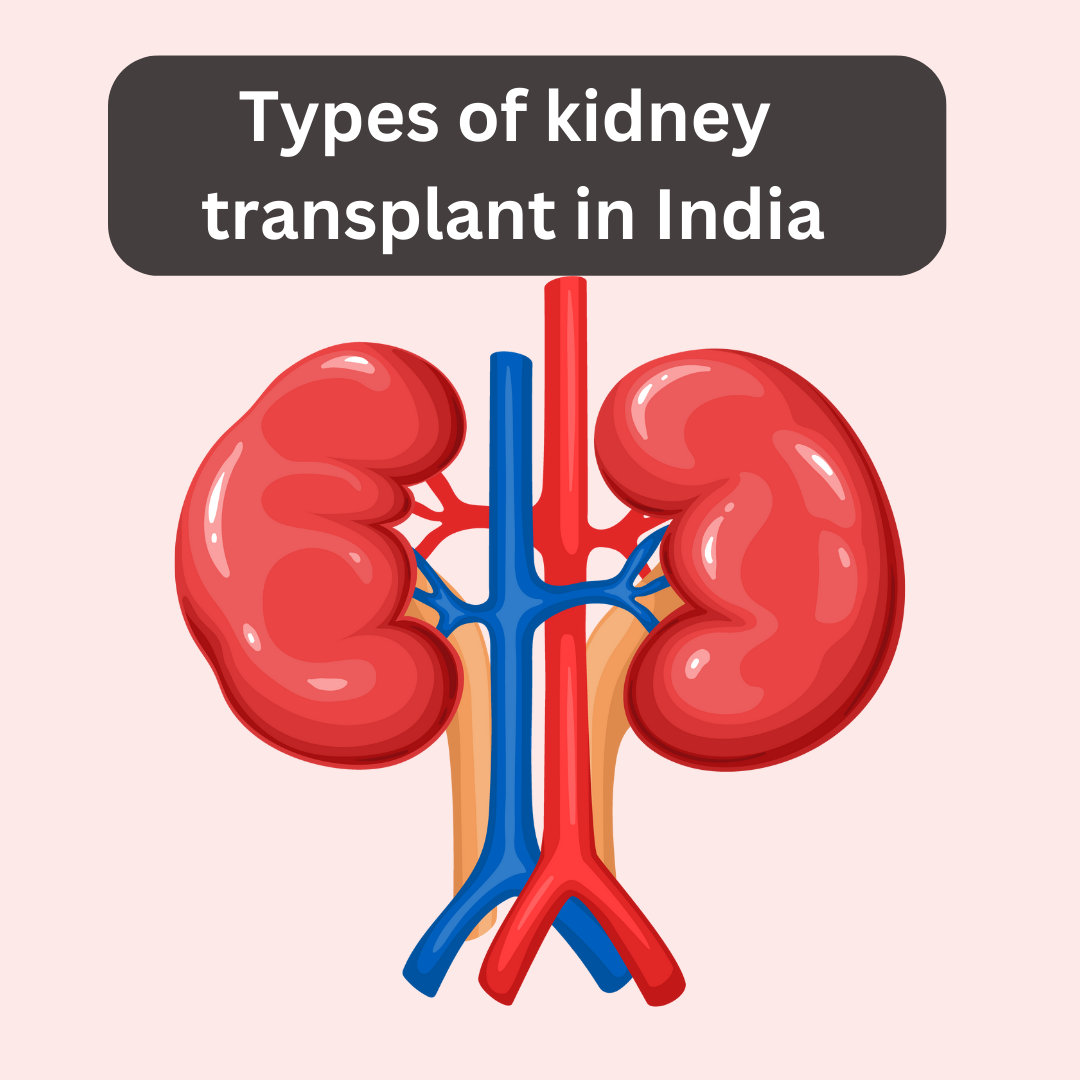
What Are The Types Of Kidney Transplants Performed In India?
The advancement in medical technology has given rise to different techniques of kidney transplant in India.
The below table gives you a gist of the three main types of kidney transplants in India:
Type of kidney transplant | Brief description | Cost |
Traditional Open Nephrectomy |
| $5500 - $ 6580 |
Laparoscopic Nephrectomy |
| $ 3150 - $ 3850 |
Robotic Kidney Transplant |
| $ 11700 - $ 14300 |
So, finally, the most important aspect before taking any decision is to know the cost! Below we have discussed the kidney transplant cost in detail!
What Is The Kidney Transplant Price In India?

Kidney transplantation in India is much more affordable than in other countries, ranging from $7,510 to $17,000, without compromising on quality.
The price of kidney transplant in India ranges from $8,400 to $14,500.
Here is an overview of the cost of kidney transplants in top Indian cities:
Now take a look at kidney transplant costs within cities of India.
Cities | Cost |
| Mumbai | $8,486 - $16,973 |
| Delhi | $8,186 - $16,372 |
| Bangalore | $8,036 - $16,071 |
| Chennai | $7,360 - $14,720 |
| Hyderabad | $7,135 - $14,269 |
| Kolkata | $6,534 - $13,067 |
Now take a look at kidney transplant costs in other countries of the world as well!!
Country | Cost |
USA | $250,000 - $450,000 |
UK | $52,000 - $60,000 |
India | $8,500 - $17,000 |
Canada | $30,000 - $40,000 |
Singapore | $49,000 - $70,000 |
UAE | $28,000 - $35,000 |
Want to inquire about personalized treatment expenses? Don't hesitate. Talk to us today.
What Are The Factors That Affect The Cost Of Kidney Transplants In India?
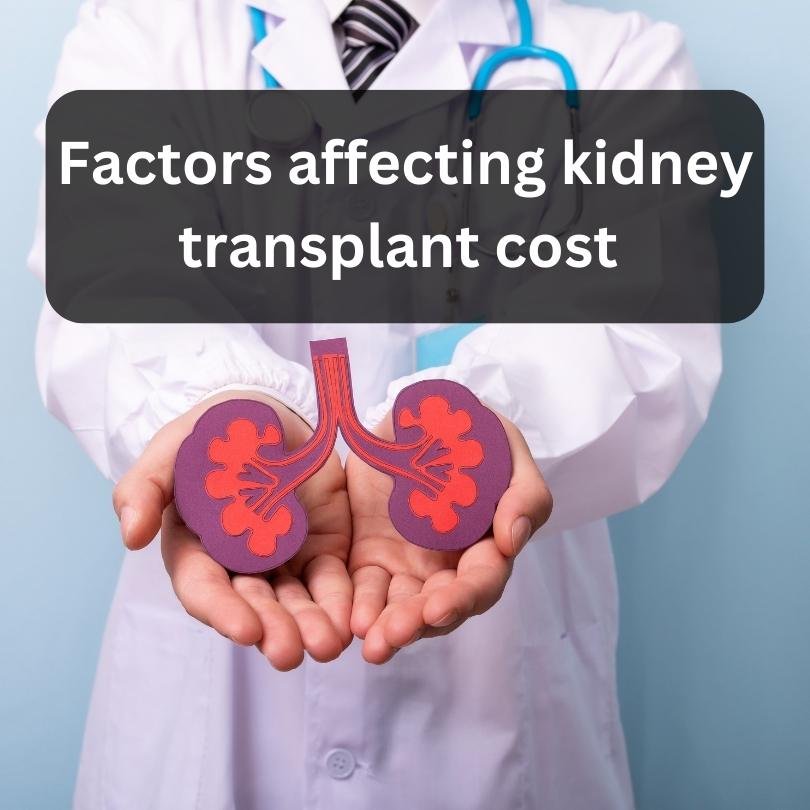
Several factors can be held responsible for affecting the price of kidney transplants in India. The factors are mentioned in the list below:
- Kind of procedure Several factors can
- Patient's age
- Medications before, during, and after surgery
- Reputation of hospital
- Duration of hospital stay
- Rehabilitation and physiotherapy
- Doctors' experience and fees
Want to know what will be included in your kidney transplant package in India?
Scroll Down to find out!
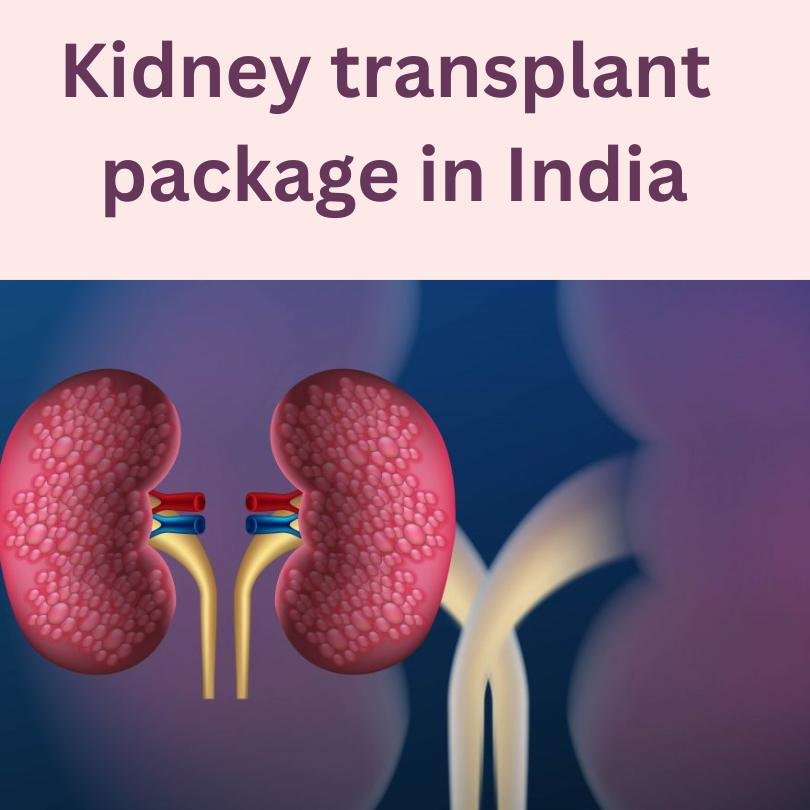
Kidney Transplant in India Package
A kidney transplant package in India typically includes:
- Donor evaluation and testing
- Pre-transplant investigations
- Surgical procedure
- Hospital charges (for donor and recipient)
- Medications (immunosuppressants)
- Post-transplant care and follow-up
- Diagnostic tests for monitoring
Note: The specific inclusions may vary depending on the hospital and individual circumstances.
Free Kidney Transplant in India
In India, the government has implemented various initiatives and programs to provide affordable healthcare, including organ transplantation. While free kidney transplant procedures are rare, some schemes and organizations help patients who can't afford the full cost, providing support and assistance.
Here are a few options to explore:
- Pradhan Mantri National Dialysis Programme (PMNDP): The government provides free dialysis for those in need.
- Rashtriya Swasthya Bima Yojana (RSBY): RSBY is a government-funded health insurance scheme that aims to provide coverage for below-poverty-line families. It offers financial protection for hospitalization and surgical procedures, which may include kidney transplantation depending on the specific policy.
- State-Specific Healthcare Schemes: Several Indian states have healthcare schemes covering kidney transplantation costs for eligible individuals. Examples include the Aarogyasri scheme in Andhra Pradesh and the Bhamashah Swasthya Bima Yojana in Rajasthan. The coverage and eligibility criteria may vary by state.
- Non-Governmental Organizations (NGOs): Several NGOs in India work towards providing financial assistance and support for organ transplantation. These organizations may offer funding or help in connecting patients with resources to cover the cost of transplantation.
It's important to note that eligibility criteria, coverage, and availability of these programs may vary. To check eligibility or find financial support, reach out to local government, healthcare organizations, or NGOs in your area.
Are you worried about the success rates? The next section will clear all your doubts!
Your well-being is our priority - call us to book your appointment today
What is the Kidney Transplant Success Rate in India?
Kidney transplant success rate in India is usually high. The exact success rate can vary due to several factors. Those factors include:
- Recipient’s health condition
- Quality of donor organ
- Technique of surgery
- Post-op care
Success rates based on donor type:
- Living donor transplants: Success rates for transplants from living donors in India are typically 90% to 95% at one year and remain high for several years after.
- Deceased donor transplants: Success rates for transplants from deceased donors are slightly lower, ranging from 85% to 90% at one year.
Why Choose India for a Kidney Transplant?
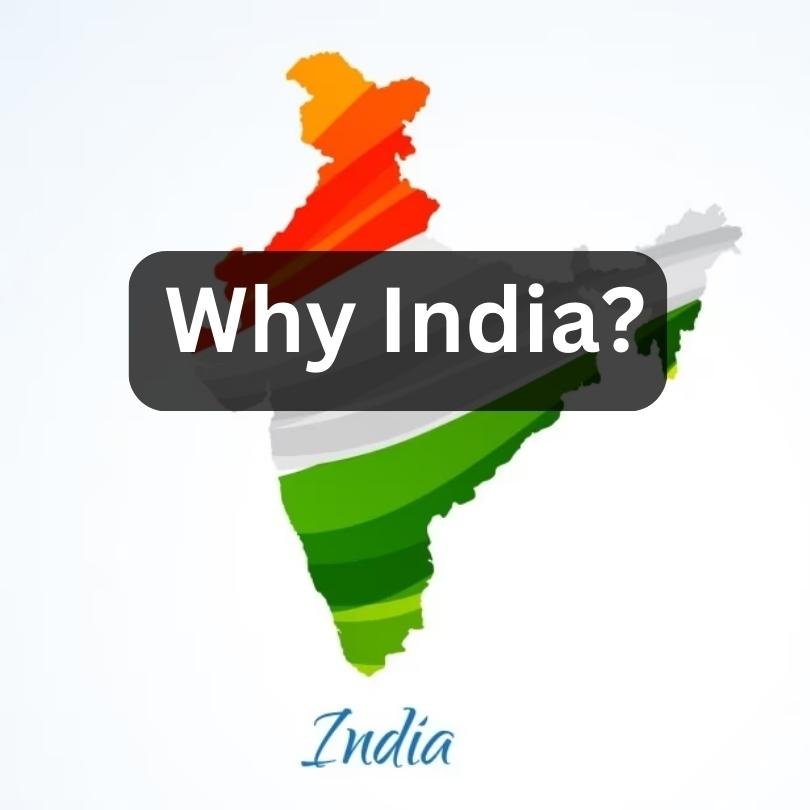
India offers compelling reasons to be preferred as the top destination for kidney transplant procedures:
- Economic advantage: The value of the Indian currency makes healthcare facilities much more affordable than in any other country in the world.
- Cost of living: India has a much lower cost of living than other developed countries. This reduces the expenses for necessities such as food, healthcare, and transportation.
- Quality treatment: India has gained recognition for excelling in urology and nephrology. A large number of successful kidney transplant procedures are performed every year in India.
- Top hospitals: There are hospitals in India that specialize in Kidney transplants. These hospitals hold prestigious accreditations such as NABH and JCI. They provide advanced and innovative healthcare services on par with international standards.
Is Kidney Transplant in India Safe?
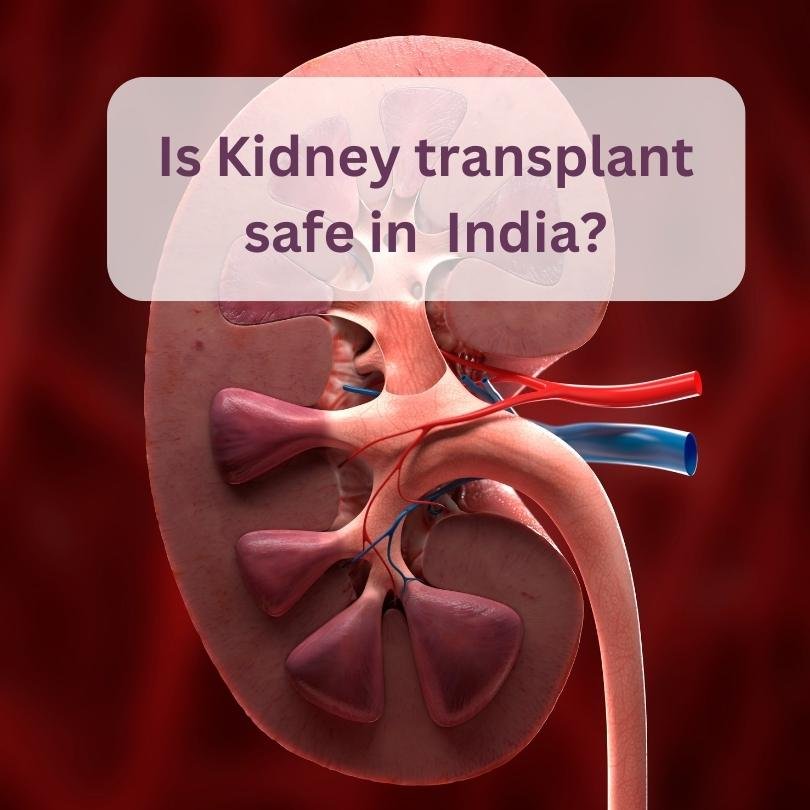
Kidney transplants in India are safe and successful when conducted by qualified experts in reputable hospitals.
Look for a reputable hospital with a skilled transplant team, experienced surgeons, nephrologists, and anesthetists. They offer thorough pre-transplant assessment, surgery, post-op care, and long-term follow-up for a secure procedure.
Additionally, it's important to consider the following factors to ensure the safety of the procedure:
- Accreditation: Check if the hospital or transplant center is accredited by recognized organizations and regulatory bodies. Accreditation ensures that the institution meets certain standards of quality and safety.
- Surgeon's expertise: Verify the credentials, experience, and expertise of the transplant surgeon who will be performing the procedure. Look for surgeons who have a good success rate and experience in kidney transplantation.
- Infection control measures: Inquire about the hospital's infection control protocols, including measures to prevent post-operative infections. Hospitals with proper infection control practices can significantly reduce the risk of complications.
- Post-transplant care: Adequate post-transplant care and follow-up are crucial for a successful outcome. Ensure the hospital has a robust system to monitor patients after transplant, addressing complications or rejection episodes promptly.
- Patient Reviews Matter: Check reviews from previous kidney transplant patients at the hospital or with the surgeon. Insights from experiences can gauge care quality and patient satisfaction.
Always consult with your doctor for personalized advice tailored to your medical condition and specific requirements.
Things To Consider When Going For A Kidney Transplant In India

When considering a kidney transplant in India, there are several important factors to keep in mind.
Here are some key considerations:
- Medical Facilities and Expertise: Research and select a reputed hospital or transplant center in India. It should have a strong track record of successful kidney transplant procedures. Look for facilities specializing in renal transplantation with experienced transplant surgeons, nephrologists, and support staff.
- Doctor's Expertise and Experience: Ensure that the transplant surgeon and medical team have extensive experience in performing kidney transplants. Consider the surgeon's success rates, qualifications, and reputation within the medical community.
- Transplant Center Accreditation: Ensure the hospital or transplant center is accredited, meeting national or international standards for organ transplantation. Accreditation ensures adherence to quality standards and patient safety protocols.
- Waiting List and Donor Options: Understand the waiting list criteria and process for receiving a deceased donor kidney or the possibility of a living donor transplant. In India, living donor transplants, including those from family members, are commonly performed.
- Financial Considerations: Evaluate the cost of the transplant procedure, including pre-transplant evaluations, surgery, hospital stay, post-operative care, and immunosuppressive medications. Discuss insurance coverage and financial assistance options with the hospital or transplant center.
- Organ Transplant Laws and Regulations: Familiarize yourself with the legal and ethical aspects of organ transplantation in India. Ensure that the transplant center follows transparent and ethical organ procurement and allocation practices.
- Support System: Consider the availability of post-transplant care, including regular follow-up visits, monitoring, and medication management. Assess the transplant center's ability to provide necessary support and resources for your recovery.
- Travel and Accommodation: If you are traveling to India for the transplant, consider logistics such as travel arrangements, accommodation options, and local support networks. Choose a location with easy accessibility to the hospital or transplant center.
- Language and Cultural Considerations: Communicate effectively with the medical team: Understand the local language or arrange translation services if needed. Be aware of any cultural nuances that may impact your experience.
- Pre- and Post-Transplant Evaluation: Prepare for a comprehensive medical evaluation to assess your eligibility for transplantation. This evaluation typically includes blood tests, imaging scans, cardiac assessment, and psychological. Understand the post-transplant care requirements and long-term medication regimen.
It is crucial to consult with specialists who can provide personalized advice based on your specific medical condition and circumstances.
Your well-being is our priority - call us to book your appointment today.
Is Kidney Transplant Available in Government Hospitals In India?

Yes, kidney transplantation is available in government hospitals in India. The Indian government has taken significant steps to make organ transplantation accessible to a broader population, including those who may not be able to afford private healthcare facilities.
Here's some information on kidney transplantation in government hospitals in India:
- Government Initiatives: The Indian government and state governments have initiated programs to promote organ transplantation, making it accessible to economically disadvantaged individuals.
- Infrastructure: Major government hospitals in cities have dedicated kidney transplant units with modern facilities and experienced medical teams.
- Subsidized or Free Transplants: Some government hospitals offer subsidized or free kidney transplants to eligible patients, providing support to those unable to afford private healthcare.
- Donor Programs: Government hospitals participate in deceased donor organ procurement programs, reducing waiting times for kidney transplants.
- Quality of Care: While cost-effective, government hospitals maintain a good standard of care. Their medical professionals are well-trained in kidney transplants and post-operative care.
- Eligibility: Eligibility criteria for kidney transplantation in government hospitals vary by state, considering factors such as income, residency, and medical need.
Note: Availability, waiting times, and resources in government hospitals may have limitations. Consult with healthcare authorities for specific details in your region.
Kidney transplantation is a life-saving surgery, but it can be expensive. Choosing the right insurance plan can help you cover the costs of transplantation and make it more affordable.
Insurance Plan for Kidney transplantation in India

There are many insurance plans in India that cover kidney transplantation. These plans may be offered by private health insurance companies or through government-sponsored health insurance schemes. The coverage and specific details of the plan can vary, so it is important to carefully review the terms and conditions of the policy before choosing one.
Here is a list of some insurance plans in India that cover kidney transplantation, with details:
Plan | Company | Details |
| Organ Transplant Comprehensive Policy | Star Health and Allied Insurance Company | This plan covers all the expenses associated with kidney transplantation, including the cost of the kidney, the surgery itself, and any post-operative care. It also covers the cost of donor screening and evaluation. |
| Critical Illness Plan | HDFC ERGO General Insurance Company | This plan pays a lump sum benefit if you are diagnosed with a critical illness, such as kidney failure. This benefit can be used to pay for the cost of kidney transplantation, as well as other expenses related to your treatment and recovery. |
| Medicare Protect | TATA AIG General Insurance Company | This plan covers the cost of in-patient hospitalization for kidney transplantation, as well as pre- and post-operative care. It also covers the cost of second opinions, if necessary. |
| Medicare Premier | TATA AIG General Insurance Company | This plan covers the cost of in-patient hospitalization for kidney transplantation, as well as pre- and post-operative care. It also covers the cost of organ donor screening and evaluation. |
Do you think India is the correct destination for kidney transplant surgery? Did you say yes?



